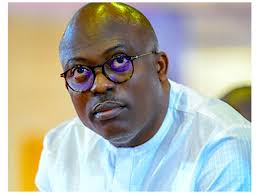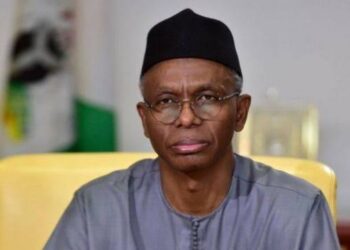Last Wednesday, the Independent National Electoral Commission (INEC) expressed its worries over the rising phenomenon of vote buying especially during the July 14 governorship polls in Ekiti elections. Vote buying by cash and other material inducements such as rice, Maggi, salt, wrappers, etc, has, unfortunately, been part of our electoral liabilities from time immemorial. The ugly culture has been brazenly employed to garnish our electoral process at all levels since the return of democracy in 1999.
The INEC had held a meeting to review the Ekiti governorship election which took place the previous weekend and observed with deep concern the manipulation of hapless voters by politicians desperate to secure their mandate through all means possible.
The electoral body observed that politicians have developed “more clever” means to buy votes and did so glaringly as if it was part of the process at the just concluded Ekiti governorship election.
INEC National Commissioner and Chairperson, Legal Services Committee, Mrs. May Agbamuche-Mbu, observed that politicians “keep trying their best. Politicians were clever in Ekiti. They have ingenious ways to sort themselves out. We will go back and review it and see how we can stop vote buying with the best of our ability”.
The commission noted that it was handicapped and could do little to halt the trend which is fast catching on and, therefore, posed great danger to subsequent elections.
Recurrent vote buying simply portrays the level of moral depravity that our political class and its fellow travelers have sunk into. We have reached a stage where the electorate are persuaded to believe that it does no harm to one’s conscience to be induced with money for vote. Though vote buying has a long history and perhaps could be as old as the electoral process itself, we are amazed by the way it was openly deplored at the Ekiti exercise. This is inimical to our nascent democracy.
In the previous exercise in Edo and Anambra states, inducement of voters was seen as a part of the elections with major political parties engaging in the dirty contest of outspending one another. Vote buying has its far-reaching consequences on our democracy because such culture would throw up corrupt leaders that are not accountable to the electorate and the citizens in general.
The last November governorship election in Anambra, for instance, witnessed an upsurge in this practice where political parties colluded with electoral officials to shortchange the process and manipulate results in their favour. Money was freely used by all the contesting parties and the voters relished in the jig, thus mortgaging their future without knowing it.
True, prosecution of elections at any level in Nigeria requires considerable war chest and, therefore, it will be too simplistic to jettison the deployment of resources in electioneering campaigns. However, the ugly phenomenon should not be allowed to take root or become a way of life. The dangerous trend should be fought to a standstill by applying the appropriate sanctions. Vote buying is a sidekick of rigging and forerunner of corruption which impoverishes the masses that are wittingly or unwitting selling their future.
The political class as one of the key players in elections, whether as candidates, party chieftains, godfathers, or campaign buffs are at the heart of voter manipulation through harassment, intimidation, use of violence and inducement of voters, who oftentimes, are cowed and manipulated to sell their consciences for a plate of porridge in the belief that once they have elected these leaders into office, they will neither be provided socio-economic amenities nor have access to their elected leaders again until the next exercise beckons.
Inevitably, inducement of the voting public to go against their will in exercising their franchise by moneybags from the major parties is a bad augury for our socio-economic and political development. It is equally sad that these vote buyers are taking advantage of the grinding poverty that held the masses captive. The practice is a threat to good governance in the sense that only wrong but rich elements would continue to access power.
To put this ugly trend in check, there is the need to criminalise vote buying and vote selling. Above all, the electoral body and other stakeholders should embark on aggressive public enlightenment campaigns to sensitise the electorate on the grave consequences of selling their votes.
Besides robbing Nigerians of quality representation in government at all levels, the practice does not only portray the country in bad light internationally, but is also a minus for a government that prides itself as having zero tolerance for corruption and allied crimes.
Blueprint gives you the latest Nigerian news in one place. Read the news behind the news on burning National issues, Kannywood, Videos and the Military



